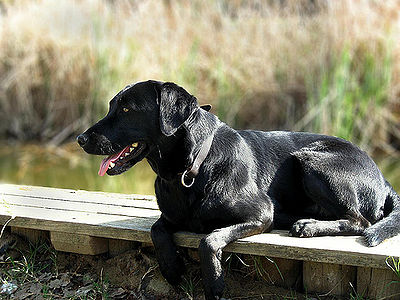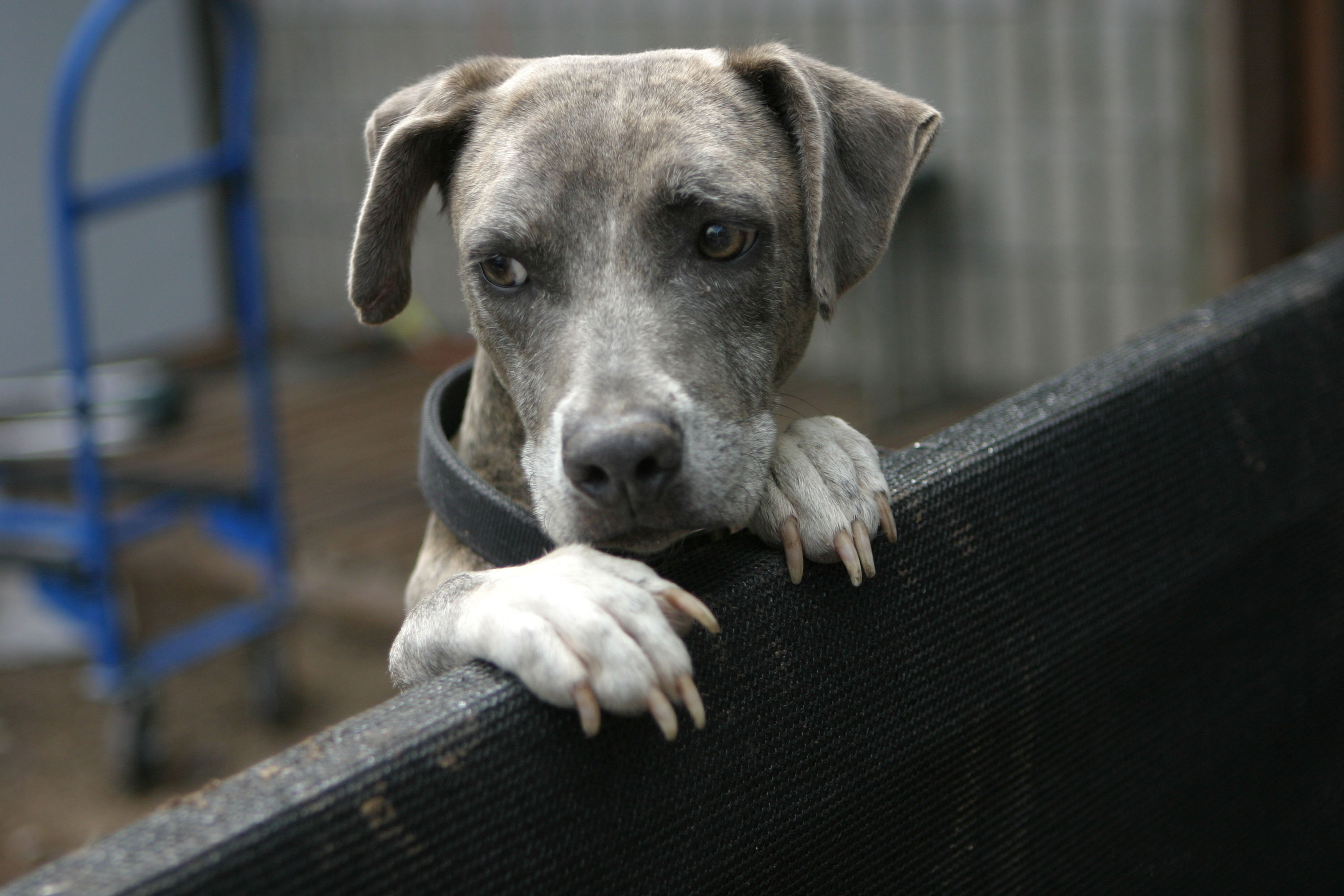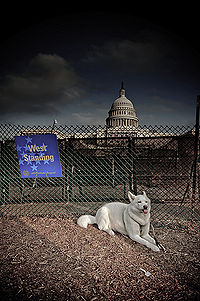
Contents |
History of hunting dogs
Prehistoric man discovered the usefulness of dogs in hunting for food. Ancient cave paintings have been found which depict humans and dogs hunting together. At first, dogs were used to spot and flush out fowl and small game. The ancient Egyptians expanded their role to include hunting for big game. The Egyptians developed and refined the Mastiff dog for hunting.
Wealthy Greeks and Romans devoted a lot of time to breeding dogs for hunting. By this time, hunting was not as necessary, since domesticated animals formed the basis of human nutrition. Hunting was done either for sport or to dispose of nuisance animals, such as wolves, bears, and even lions and other large cats.
With the invention of firearms it became necessary to train dogs not to react to the loud noise of a gun. The dogs find and guard the prey until the hunter can shoot it.
Types of hunting dogs
- Retrievers – They are mostly used in duck hunting. They enter the water and bring back the water fowl by holding them gently in their mouths. Retrievers are easy to train since they are obedient and have long attention spans.
- Pointers – These dogs walk ahead of the hunters and sniff out prey. When they find it, they use their bodies to point out its location. They are known for athleticism, intelligence and dedication.
- Setters – They follow the scent of the game and crouch next to it, impeding its escape, until the hunters catch up. Setters are athletic and motivated and can hunt for long periods and cover a lot of ground without tiring.
- Spaniels – Spaniels are small dogs which can remove prey from thick brush. Their soft mouths allow them to retrieve the prey without damaging it. They are intelligent and obedient.
- Hounds – They have an extremely keen sense of sight and smell and can be used to track game, although they are more commonly used by police and law enforcement to search for missing persons, find drugs etc.
Controversy surrounding the morality of hunting with dogs
Aside from the issue of the morality of hunting in general, questions have been raised about the morality of hunting with dogs. Two main problems must be addressed. First, some feel that game which is killed by dogs suffer a more inhumane death than game killed by hunters’ guns. Second, the dogs themselves may be mistreated. Hunting involves the danger of getting killed by bigger prey such as bears. Long periods of time spent in the woods can cause heatstroke, overexertion, ticks, Lyme disease, foxtail infection, poison ivy, snakebites, tongue injuries, Limber Tail Syndrome, exercise-induced collapse, bloating and hypoglycemia. Elderly hunting dogs are often abandoned by their owners once their usefulness has come to an end. A third concern sometimes voiced is that the use of hunting dogs gives the hunters an unfair advantage over their prey.
As a result of these arguments, some countries have taken steps to outlaw dog hunting. Under the Hunting Act 2004, it is illegal to hunt wild mammals with a dog in England and Wales. However, Michigan, Vermont, Texas, Indiana, Wisconsin, New York and some other states have legalized using dogs to retrieve deer and other large prey.
Proponents of hunting with dogs claim that this method allows them to control the population of certain animals. The dogs allow them to get a clearer shot of their prey, resulting in a more humane death for the animal. Although hunting dogs are exposed to the elements, a good hunter will take good care of his dogs and ensure they remain healthy.
Household pets
Breeds which were bred for hunting also make good household pets. They fit into an active lifestyle and get along well with children. They are loving and loyal and love to play catch. These dogs need plenty of room to run around and are best kept in a house with a yard. Dogs bred for hunting are some of the most popular pets: Labradors, Golden Retrievers, Cocker Spaniels and Setters.
Some hunters keep dogs for hunting but also treat them as a family pet. In this case, care must be taken to train the dog not to attack small children and other pets since they have been taught to be predatory. A dog which is treated as a pet will be more loyal to its owner and try harder to please, thereby improving its abilities as a hunting dog.
List of Hunting Dogs
- American Cocker Spaniel
- Boykin Spaniel
- Bracco Italiano
- Brittany Spaniel
- Chesapeake Bay Retriever
- Clumber Spaniel
- Curly-coated Retriever
- Dalmatian
- English Setter
- English Springer Spaniel
- German Shorthaired Pointer
- Gordon Setter
- Irish Red & White Setter
- Japanese Akita Inu
- Kai Ken Dog
- Karelian Bear Dog
- Labrador Retriever
- Lagotto Romagnolo
- Llewellyn Setter
- Mountain Cur
- Nova Scotia Duck Tolling Retriever
- Picardy Spaniel
- Pudelpointer
- Russian Spaniel
- Spinone Italiano
- Vizsla
- Weimaraner
- Welsh Springer Spaniel
- Welsh Terrier
- Wetterhoun
- Wirehaired Pointing Griffon
- Wirehaired Vizsla



